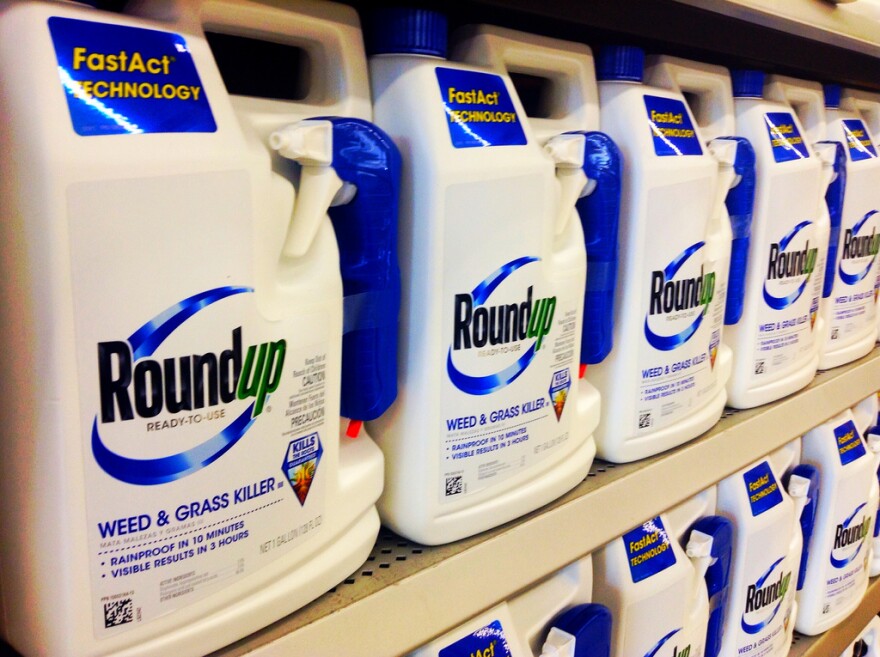Back in 2015, Montgomery County, Maryland, became one of a growing number of local governments across the country to restrict the use of pesticides in lawn care. The weed killer RoundUp and other pesticides have been linked to health risks in humans and sharp declines in populations of Monarch butterflies, bees, and other pollinators around the world.
George Leventhal, a Montgomery County Councilman, was the lead sponsor of the lawn pesticide ban. He remembers the arguments made by local parents.
“We had mothers of asthmatic children who were having asthma attacks when their neighbors were applying pesticide spray,” Leventhal said. “The spray would carry in the wind, and would trigger asthma, chemical allergy, multiple chemical sensitivity -- and there is no need to use these toxic chemicals on your lawn.”
The county’s prohibition in October of that year came seven months after the World Health Organization, in March of 2015, labelled RoundUp’s active ingredient, glyphosate, a probable human carcinogen.
But the pesticide manufacturing industry sued the county. And a judge in August of 2017 sided with the industry, striking down a portion of the county ban that applied to private lawns – although not to public property, such as playgrounds and county parks.
The manufacturers of pesticides and their allies did not stop there. Republican opponents of regulation slipped language into the federal Farm Bill passed by the U.S. House in June that would prohibit local county or town governments from restricting the use of pesticides.
In other words, it was a ban on bans – to benefit the pesticide industry. If the House version of the Farm Bill is passed by the U.S. Senate later this fall, 155 local governments across the country would have their local laws restricting the use of pesticides overridden by the federal government. In Maryland, this would include not only Montgomery County, but also Howard County, Takoma Park, Greenbelt and Hyattsville.
Emily Griffith is a policy attorney with the nonprofit Environmental Working Group, which has been tracking the legislation.
“It’s probably worth noting that it’s about three words in this massive piece of legislation that would change so much for local government authority over pesticide laws,” she said. “So it’s just possible that it’s going under the radar.”
Supporters of the ban on bans – including the House Republican leadership – argue that only the federal EPA and state governments should regulate pesticides. Chris Novak, president of an industry trade group called Crop Life America, said: “Localities lack the staff resources and scientific expertise to conduct these reviews.”
But Jay Feldman, executive director of Beyond Pesticides, argues that local governments should have the right to protect their local residents.
“We’re looking for public health protections,” said Feldman. “That means protections of our watersheds, protection of the water that we drink, protection for children on playing fields and in parks, and protection for pets as we walk around the neighborhood.”
George Leventhal, the Montgomery County Councilman and a Democrat, sees a bit of hypocrisy in the Republican U.S. House demands for federal control over the issue.
“Conservatives warn against federal overreach, but this provision is the best example of federal over-reach today,” said Leventhal. “And it’s federal overreach in the interest of a particular corporation. Monsanto is always in the lead in these things. They are the ones who market and sell Round-Up.”
Monsanto is now owned by the German company, Bayer. But who owns Congress is up for debate…and a vote, on November 6th.




